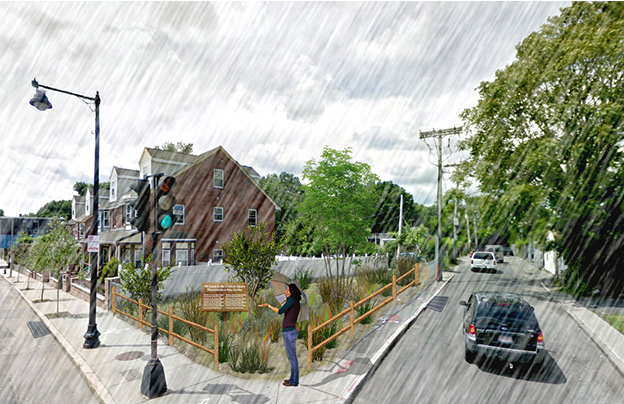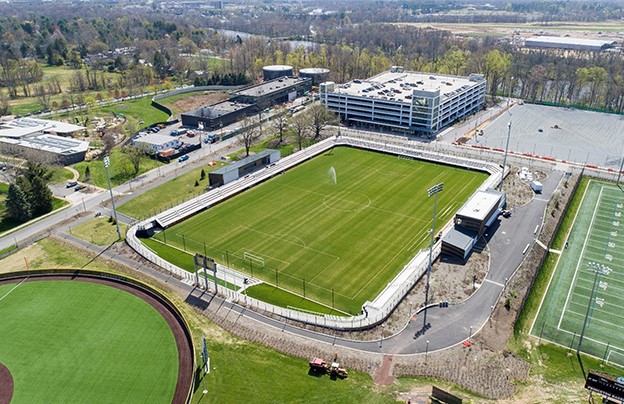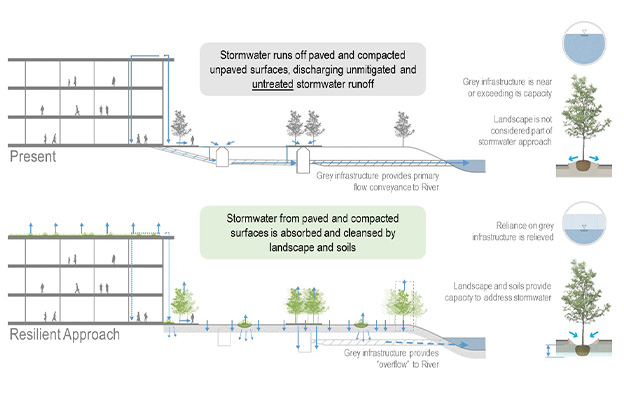Friday, March 22, is World Water Day, a United Nations observance day that recognizes the significant role freshwater plays in our communities, ecosystems, and the planet. According to the United Nations, “World Water Day celebrates water and raises awareness of the 2.2 billion people living without access to safe water. It is about taking action to tackle the global water crisis. A core focus of World Water Day is to support the achievement of Sustainable Development Goal 6: water and sanitation for all by 2030.” UN-Water – the United Nations’ coordination mechanism on water and sanitation – also dedicates a theme for World Water Day each year, with 2024’s theme being “Leveraging Water for Peace.”
Nitsch acknowledges the importance of water in everything we do. Our philosophy is one that treats and manages water as a resource, and strives to maintain or restore the natural water balance in ways that mimic the natural cycle and promote a self-sustaining, balanced, and healthy ecosystem. Through our many projects that incorporate sustainable stormwater management and green infrastructure Best Management Practices (BMPs) such as rainwater harvesting techniques, pervious pavement, and bioretention, we aim to improve our communities’ approaches to stormwater with unique and resilient solutions that will withstand in the face of climate change.
Read on to learn more about three Nitsch projects that are addressing water in impactful ways.
Boston Water & Sewer Commission, Green Infrastructure Low Impact Development On-Call

As the lead on-call consultant for the Boston Water and Sewer Commission (BWSC), Nitsch designs and implements innovative green infrastructure BMPs across Boston to manage stormwater and increase resilience. Through thoughtful site and project selection in addition to interagency collaboration, the Nitsch Team works closely with the BWSC to achieve additional community benefits including increasing green space in urban areas and providing public education opportunities on water quality issues and flood resilience.
The projects identified by BWSC are part of a larger City of Boston initiative to incorporate green infrastructure/Low Impact Development (LID) stormwater features into infrastructure improvement projects.
In 2021, Nitsch pioneered the Boston Green Infrastructure Planning and Design Handbook that serves as a guide for public and private property owners to implement green infrastructure techniques to manage stormwater throughout the City. With our integrated green infrastructure planning and design expertise, Nitsch is driving innovative solutions to achieve the City’s water quality and resilience goals.
Princeton University, East Campus Stormwater Facilities

To support Princeton University’s sustainability and campus development goals, Nitsch provided stormwater planning and engineering services to support the redevelopment of the area known as the East Campus, which includes the redevelopment of a former parking lot into a new soccer stadium, a soccer practice field, a parking garage, and a building known as “T.I.G.E.R.” (Thermally-Integrated Geo-Exchange Resource central utility building).
Nitsch performed a district-scale planning study that called for managing stormwater using a series of localized green infrastructure practices dispersed throughout the 22- acre site and a regional location for large storm flood mitigation beneath the soccer stadium that supports stormwater management for the East Campus as well as eight acres of planned upstream development. The soccer stadium (pictured above) is also the site of a stacked largescale geo-exchange system and stormwater detention system – combining two major resilient infrastructure systems in one location.
MIT, Sustainable Campus Stormwater and Landscape Ecology Plan

Nitsch led a collaborative team working on the Massachusetts Institute of Technology’s (MIT’s) Sustainable Stormwater and Landscape Ecology Plan. The Sustainable Campus Stormwater and Landscape Ecology Plan provides MIT with a framework for considering the campus landscape and stormwater systems at a campus-scale, and a mechanism for guiding individual projects to align with goals while implementing strategies that support the larger district and campus priorities.
The Plan envisions a future campus where every surface and space is enhanced to address urban environmental issues such as stormwater runoff and urban heat island, and that is adaptable to provide campus resiliency to future climate change impacts such as extreme temperature and precipitation conditions, and flooding. All the while, the performative landscape helps enhance the quality of life on campus and in the City of Cambridge through a network of green infrastructure. The Plan ties into ongoing campus as lab opportunities for monitoring the performance of indicators such as increased tree canopy, improved water quality, and biodiversity of open space.



